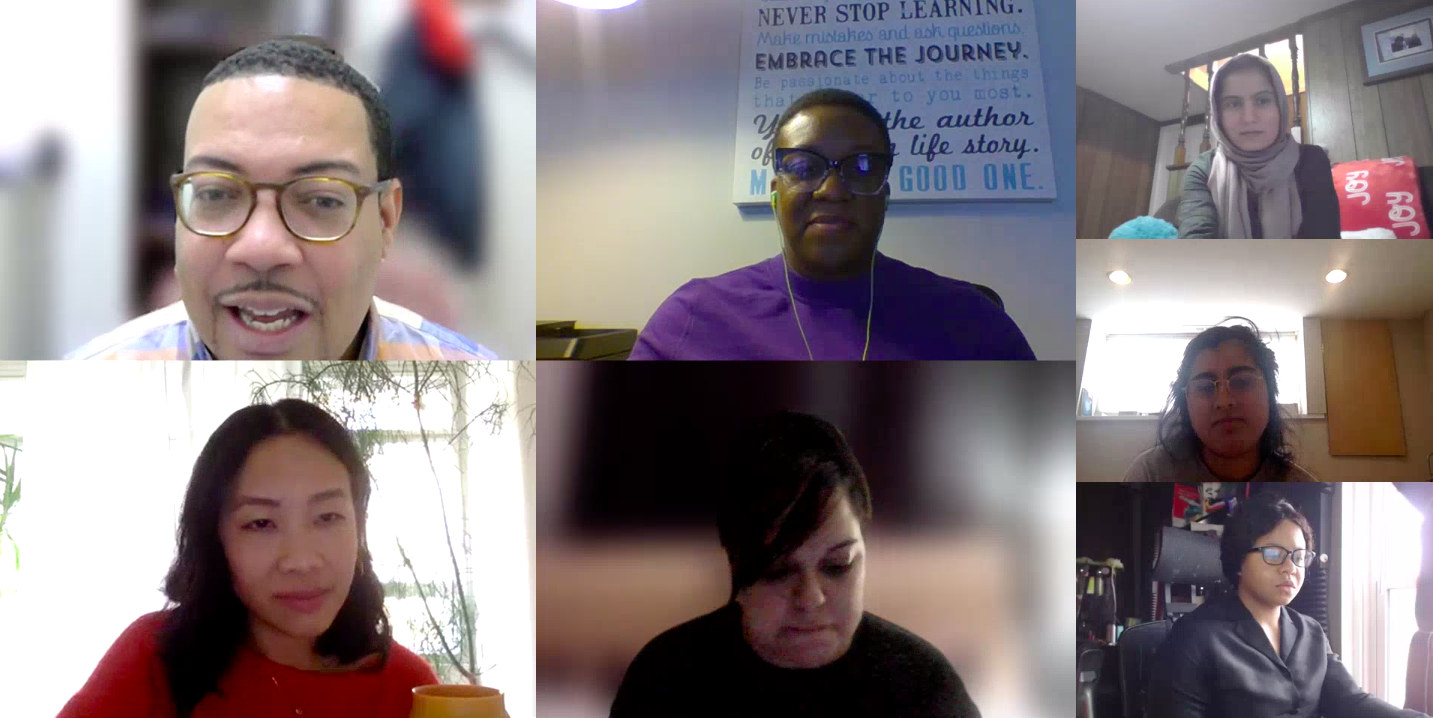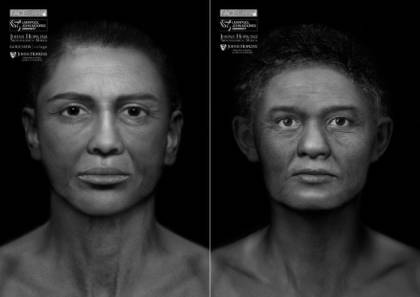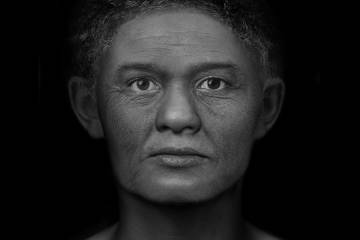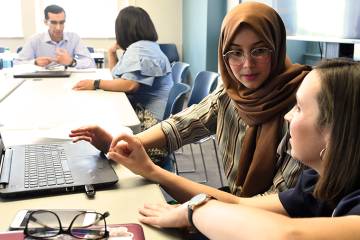When PhD candidate Tara Tran first started her undergraduate experience, she was sure she wanted to follow a pre-med path, certain that she wanted to become a medical doctor. But while in college, she found that science classes, which she breezed through in high school, weren't igniting her passions. It was a required history class that truly excited her.
"I had gone through some medical issues in high school and thought that would give me a good perspective of dealing with patients. Doctor was always the plan." Tran said. "The thought had never even occurred to me that there were people who considered the humanities an actual profession."
Today, Tran is a PhD student in the Johns Hopkins Department of History studying the empirical exploitation of the postcolonial global South through the lens of gender, sexuality, and race. In February, she joined seven other Krieger School of Arts and Sciences students in discussing the importance of humanities research at local community colleges.

Image caption: Tara Tran presents "The Biology of a Historian" as part of the Humanities for All community college speaker series.
The lecture series is supported by a $1.9 million Humanities for All grant from the Mellon Foundation, an organization dedicated to supporting the arts and humanities in the U.S. Johns Hopkins received the grant in 2017. Intended to develop partnerships between community colleges and four-year universities, the program sponsors community college summer research projects, as well as a Humanities Collaboratory summer working space where community college students are invited to Johns Hopkins to work on individual projects supported by university graduate students, postdocs, and PhD students.
Each year, Hopkins receives support from the Mellon Foundation to increase its outreach to local community colleges, debuting the first example of the Humanities for All Community College Partners Speaker Series last year. Krieger students present their research to Community College of Baltimore County students as a way to showcase the opportunities that exist in the humanities to students who, like Tran, might not have known such career paths existed.
Natalie Strobach, assistant dean of undergraduate research and coordinator for the Humanities for All program, said the lecture series is a great way to introduce students to the concept of the humanities as a viable career path and vocation, not just an interest or hobby.
"We want community college students to feel comfortable in a four-year university setting," Strobach said. "And the more exposure they have to people from a four-year university, the more they feel like they belong there. So, we want to cut down those barriers. It's a two-way benefit because these students are bright, and this is a way to diversify the pipeline to graduate school and the professoriate."

Image caption: Depictions of the Goucher Mummy (L) and the Cohen Mummy (R), following two years of research and analysis of two individuals stewarded by the Archaeological Museum, including Meg Swaney, one of the presenters in the lecture series.
Unlike Tran, Meg Swaney, a PhD student studying Egyptian Art and Archaeology, has had a passion for the humanities—and Egyptology, specifically—for nearly her entire life. At the end of April, she will conclude the speaker series by presenting her work reconstructing the faces of Egyptian mummies stewarded by the Johns Hopkins Archaeological Museum.
Swaney said she was eager to talk about her work, and share the ways that humanities scholars can collaborate across disciplines.
"I think the humanities often get sidelined as not offering any real-world application," Swaney said. "But you can draw on what the humanities has to offer all while in conversation with other fields like forensics."
To prepare the facial reconstruction exhibit, presented at the Archaeological Museum in 2018, Swaney collaborated with laboratory teams in Liverpool, researchers from Johns Hopkins School of Medicine, and specialists in orthodontics and chemical analysis. First, radiologists completed a CT scan of the bodies, and then those scans were sent to facial reconstruction experts in Liverpool. These experts used that raw data, combined with datasets for contemporary populations and extrapolations for ancient diets gathered by Swaney and the Hopkins historians, to build out what the mummies may have looked like in life.
Swaney said she was excited to share what she hoped was a very visually exciting presentation with people outside of Hopkins.
"Part of the reason why I applied to do this lecture series is that I really don't like the idea of a very insular academic outlet for research," Swaney said. "I feel it's important to share results with the public and find a way to make it relatable and meaningful in contemporary context."
Correction: The community college partnering on this grant was misidentified in an earlier version of this article. The Hub regrets the error.
Posted in Student Life, Community
Tagged community, humanities









